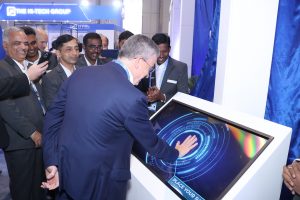By Apeksha Kaushik & Neha Singh, TimesJob.com
Millennials are no more a novelty at India Inc. but attracting them and managing them still remains a challenge for employers. TimesJobs brings you the ‘Millennial Survey’ to help the HR fraternity and employers understand the needs and desires of millennial workforce. This will help to understand the changes required in creating a workplace suitable for the millennials, says Apeksha Kaushik
Millennials matter. Here’s why
Sample this: Baby boomers are retiring and millennials already form 25 per cent of the workforce in the US and account for over half of the population in India. They are the future and are the only ones capable of dealing with the new tech-savvy world. They have the right skills to manage business process and operations of the future. Their knowledge and use of technology and affinity with the digital world makes them a critical part of today’s and tomorrow’s workplace.
Given this…
It is important for organisations to attract, hire and engage millennials well. However, the challenge lies in here itself – as getting best talent, hiring and managing the millennial workforce is not like doing the same for any other previous workforce generations. Following takeaways from previous TimesJobs study makes it evident:
- Millennials are pro-flexibility. Rigidity at work, workplace puts them off big time
- They expect rapid progression, an interesting career and constant feedback
- They don’t want to be ruled. They like to have quality discussions
- Regular feedback, encouragement, public recognition counts from them
The key findings of the new study shows that corporates must re-align workplace strategies, processes and settings to suit the needs of millennials to have a better and productive workplace.
What the millennials say?
- We are the hoppers
Millennials are job hoppers. Nearly, 40 per cent of the respondents say they expect to have atleast 4-5 employers in their career. Just 20 per cent feel they will stick with just one employer for their entire career. Nearly 65 per cent respondents said they don’t think they would be able to rise to senior positions in their current job. This, clubbed with a desire to rise up the ladder quickly and make big bucks, drives 60 per cent millennials to change job as soon as they find a good opportunity. - Flexibility tops it all
Nearly 40 per cent millennials in the survey said that flexible work arrangement is the most important aspect of an attractive employer. Good salary and benefits package is secondary and employer brand takes the third place. A good work-life balance and strong diversity policies are also their priorities at workplace. However, 65 per cent millennials say that the expectation they had with respect to work-life balance before joining the organisation wasn’t fulfilled. Infact, the flexibility scenario of their job is worse than what they had thought. About 25 per cent say it is what they had expected it to be and only 10 per cent say the work-life balance is better than what they expected. - Money is a concern
While salary may have been a secondary decisive factor when taking up a job but it is still an important one and not many millennials are happy about the way they are paid. Almost 80 per cent survey respondents said they are unhappy with their current salaries. Nearly 20 per cent of these unhappy millennials are in their first jobs and 40 per cent have changed about 2-3 employers. - We are ready to go global
Millennials have a strong desire to work overseas with 70 per cent respondents wanting to do a global assignment during their career. This is great news for organisations who are looking for foreign expansion and growth. However, this also indicates brain drain phenomenon. - Manage us differently
Nearly 60 per cent millennials say they are not happy with the leadership styles of their boss. Most feel that their managers do not always understand their ways of working, use technology or handle various situations at workplace. There are differences in opinions, work styles and comprehension of tasks, challenges and ways to deal with them. Infact, 70 per cent millennials are not happy with their company work culture. - Brand matters to us
About 30 per cent millennials are serious about a brand’s reputation when taking up a job, hence its high time organisations put in that extra effort to up their brand game. Nearly 40 per cent respondents said they have/will avoid working in a particular company if they believe it has a negative image.
Interviews
India Inc. evolving workplaces for millennials
Matching the millennials expectation of a new-age workplace is nothing less than finding the way out of ‘Alice in the Wonderland’. They need a workplace where they can ideate, create, innovate and recreate. How should organisations redesign workplaces for new-age employees? Neha Singh Verma spoke to industry experts.
‘Workplace should tune with the millennial’s aspiration’ – Sudipta Gupta, Director Human Resources, The PRactice Strategic Communications
It is imperative for every organisation to understand the needs of millennials and create a workplace that is in-tune with their aspirations. The young workforce demands respect, trust, understanding and transparent communication. They are tech savvy, want workplace flexibility and growth opportunities.
At The PRactice we cater to the aspirations of our young workforce by offering nonhierarchical set up. We encourage and provide support to employees to take up new initiatives and projects irrespective of their level in the organisation. This has enabled us to be an organisation where leaders have grown from within. We have a robust rewards programs that is peer driven. Employees select winners for their individual and team contribution. We offer a robust training program to equip employees with skill sets that will keep them abreast with changing landscapes. We offer internship opportunities through our global brand partner Porter Novelli to provide employees with international exposure.
Our leaders spend time to train and mentor young managers. We foster collaborative workplace by leveraging technology solutions like Google drive, mobile apps etc. to offer flexibility at workplace. It helps employees to work remotely.
‘Millennials should feel proud of the company they work for’ – Vinita Shrivastava, Senior Director, India HR & Global Mobility, HARMAN International (India) Pvt. Ltd
As we head towards becoming the youngest country (by the workforce age) in the world, many companies are revising their policies to meet the demands of this younger generation. Therefore, our focus through various L&D efforts is to nurture first time managers and grow mid-level managers into leaders of tomorrow.
A millennial employee seeks the following:
- Technology and innovation: The new generation is tech savvy and willing to experiment. If an organisation can provide them a culture of innovation, they will be able to attract and retain this talent pool.
- On job trainings and L&D programs: The millennial workforce is ambitious, passionate about quality work and willing to take risks. They come to work asking, “What is going to excite me today?” We believe that ‘learning’ is not meant only for professional development but also for personal growth. For eg, we encourage our colleagues to learn music. We run guitar classes for employees within the organisation. Mentorship also plays an important role. Millennials seek real time constructive feedback from mentors at work.
- Pride factor: Millennials should feel proud of the company they work for. Today’s employees judge a company not only by its financial status but by rankings of surveys such as great place to work, awards won for path breaking ideas etc.
- Flexibility: This group does not believe in the ‘9 to 5 job’ culture. They need freedom to work at their convenience – whether it’s flexi timings or work from home which lets them balance personal and professional lives well.
‘Create an atmosphere that millennials feel excited about’ – Soumendu Ganguly, VP-Product & Marketing, Sulekha
We believe that satisfied and engaged employees are more effective and productive. As employees spend most of their day at the office, a workplace becomes an essential part of an employee’s life. Hence, having a happy workplace is a mandate rather than an option.
We have recently shifted from a small office to a bigger workplace. This shift was essential for Sulekha considering our growth in terms of workforce strength and ambition. But along with that we also wanted to do justice to the diverse workforce we have. To engage our workforce more effectively, we decided to provide them with an atmosphere in the office which can excite them. This includes a recreation room, a study cum library and lounges to relax. Additionally, we also have meeting rooms named after inspirational sports persons. These include legends like Roger Federer, Mary Kom, Jahangir Khan, Michael Phelps, Martina Navratilova, Serena Williams etc. For this exercise we received more than 100 entries for 20 meeting rooms from our employees.
All in all, we understand that the changes have worked extremely well towards employee enthusiasm and well-being.
‘Millennials prefer accessibility to leadership’ – Tina Balachandran, Head HR, LeEco India
In a country like India which has a young demographic, there is no dearth of talent but to keep them engaged is the huge task that most employers need to undertake. Millennials are now entering the workforce and they are bringing with them a new perception of what office life should be like and how relationships between employers and employees should be structured. A passionate lot, millennials ensure they do their best. It is important to help them feel both valued and financially secure as employees.
We understand that millennials prefer an open culture, a conversational approach and expect greater accessibility to the leadership. They prefer being mentored and fostered rather than being directed. They respond better to an open channel of conversation, a nurturing environment where the boss isn’t a boss but a coach.
Employers need to provide them with opportunities for growth with a clear focus on learning and development. Companies need to be sure that they provide the millennials with opportunities to stretch their creativity and develop their own initiatives and goals.
Read the full article here: TimesJobs.com (TNinsite)




